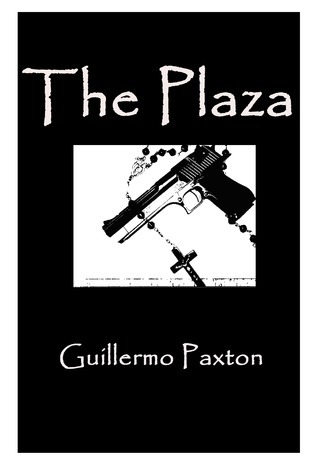
Plaza. Spanish: in Mexican culture, a slang word describing the territory of a certain drug cartel.
“I’ve been a reporter for years, and a resident of Juarez, Mexico all of my life. I’ve never seen anything like it. No one thought the drug war would be like this…My town has become the battleground for drug cartels. Even the police are being killed on a daily basis. Bands of teenagers working as paid assassins & extortionists are hitting every business, no matter how small. Things I took for granted like going to a restaurant, getting a haircut, or even an evening at the movies with my family put all our lives in danger. Robberies and public executions have become common place. Now when I report only five homicides in twenty-four hours, it is considered a good day.” – Saul Saavedra, crime reporter for The Juarez Daily in THE PLAZA.
In just one year’s time he saw his city change from a decent place to live and work to a crime-infested inferno. He reports the happenings in a city that is experiencing total social decay and writes against the government that at best does nothing about it. Two major drug cartels battle it out in Juarez and Saul soon finds himself in the crossfire between Juarez Cartel/Zetas alliance and the Sinaloa Cartel.
Based on true events in the city of Juarez, The Plaza is about the people, the government and the cartels that make up both the innocent victims and the criminals that are the pawns in the drug war of Mexico.
My review:
I’m not sure how to classify this book. It didn’t strike me as a novel. There was no single main character, obstacle to overcome, or satisfying conclusion to a challenge. If anything, it struck me as a memoir of a place (Juarez). The book explores the devastating and destabilising effect of the Mexican government’s war on drugs by chronicling the lives and deaths of those affected by the cartels’ increasingly violent bids for power. The subject matter was really interesting. It isn’t something I know much about. Pat titles like “The War on Drugs” or Terror or whatever roll nicely off the tongue, but not infrequently. We tend to forget that somewhere far away from our comfortable lives, that saying is a reality. It really is a WAR, and people are dying. The Plaza effectively reminds the reader of this and is, therefore, important.
I did find it repetitive at times. The chauvinistic nature of Mexican culture and the rarity of women moving into positions of power was twice highlighted using the case of Michelle, for example. I actually thought I was on the wrong page and reading the same passage for a moment because the two sections were so similar. There were a couple of such occurrences. I also didn’t see the point of the serial pedophiliac rapist. Unless it was meant to highlight the fact that a side effect of the mafia wars was that the police were too distracted to look for non-drug-related criminals (which was made elsewhere, also in reference to young girls disappearing), I didn’t understand how Juan related to the story. It felt like it was just an added titillating element, an unpleasant one at that.
I would have liked to know how the author was related to the events. Is he one of the characters, related to someone in one of the mafias, someone who lived in Juarez at the time, someone unrelated but interested enough to do some research, or is the book a completely fictionalised account based on the circumstances in Mexico? Regardless, if you are interested in how America’s exportation of the ‘War on Drugs’ is being played out in other places, The Plaza is one for the TBR list.